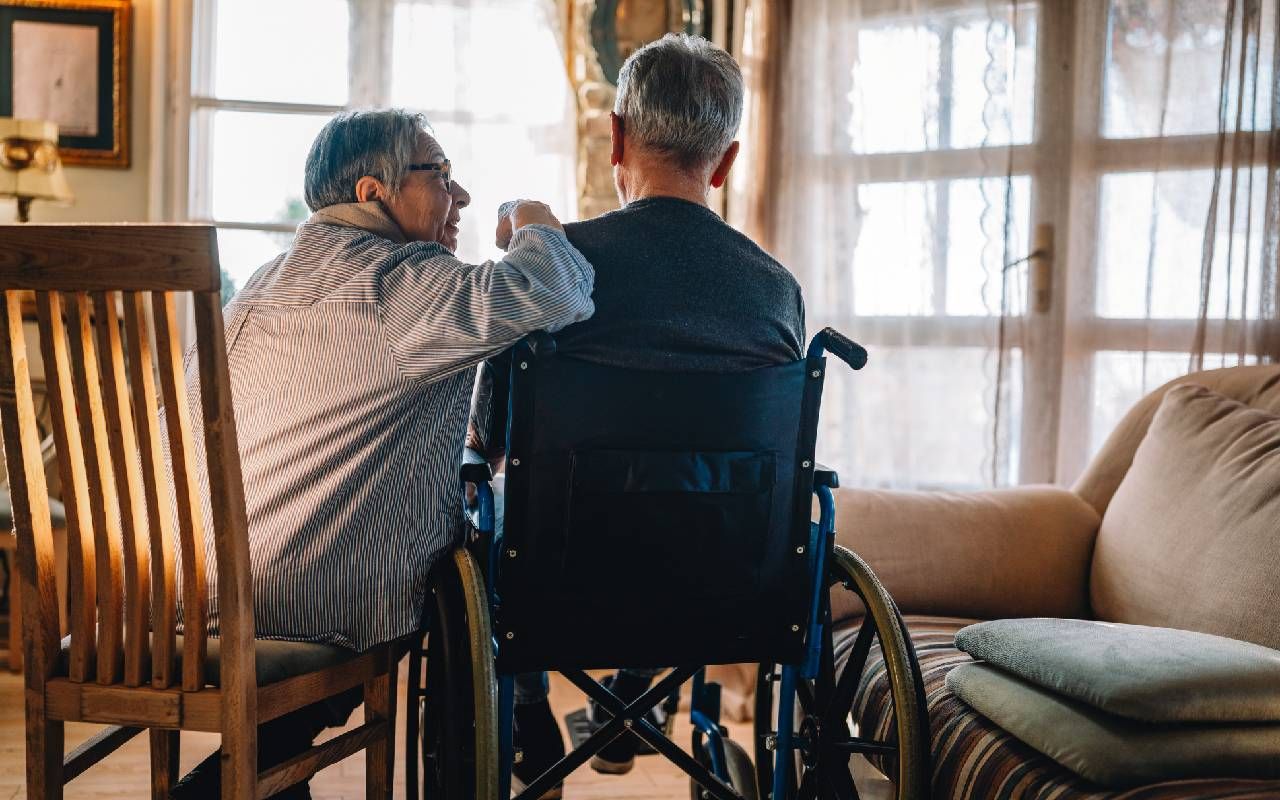Having Essential Conversations About Death
If your wishes remain unspoken, you will leave your loved ones in a quagmire of confusion
Since our first encounter on a cyber dating site in 2010, my husband and I have had a fluid conversation about death. That includes what we expect from the other should we find ourself hospitalized. Or facing a debilitating condition. Or trapped in a twilight between life and death. In other words, we discuss what we're willing to endure. And what we are not.

Being able to share our thoughts openly — and discovering we were very much on the same page about quality of life over quantity of life — was a huge relief for both of us.
If that sounds odd or creepy, it may help to know that Bob and I met after each of us lost beloved spouses and longstanding marriages to cancer. From the get-go, caregiving, illness and death were front and center in our lives. Being able to share our thoughts openly — and discovering we were very much on the same page about quality of life over quantity of life — was a huge relief for both of us.
In 2023, our conversation intensified as we experienced two more losses. I appreciated that I could tell Bob that I was relieved that my older brother went quickly after a massive stroke last January that his doctors said would leave Alan's physical and mental capacities severely impaired. I didn't want to lose my brother. But even more, I didn't want Alan to have to slog through years of a life that he would not have wanted.
Death and Illness Part of Our Lives
I knew this because Alan and I had discussed end-of-life wishes many times over the decades. He frequently quoted my parents, who liked to say, "Life is a day in the classroom." Alan had lived, Alan had learned. After the stroke, I had no doubt that Alan wanted the bell to ring signaling class was over.
Far harder was the seven-month approach to death that my stepson endured before he closed his eyes for the last time in June. Just 41, Adam was determined to try anything and everything to overcome pancreatic cancer. It was upsetting to watch 150 pounds drop off his body because he couldn't eat. It was horrifying to watch Adam become confined to bed because the cancer deprived him of the use of his legs. It was devastating to watch Adam shift from an autonomous adult to one fully dependent on others.
But all of that paled beside the physical pain Adam endured minute after minute, day after day, month after month. Neither opioids nor fentanyl could quiet his writhing agony. And there wasn't a damn thing Bob or I could do to ease his pain.
But regardless of whether death is a portal to an afterlife or a final knell, we do share a belief that life is not worth living at any cost.
At night after Adam would go to bed, groaning up the stairs of our condo to lie awake moaning all night, Bob and I would say to each other, "I don't know how he puts up with this." We were clear that the literally gut-wrenching treatments were Adam's choice, and a choice we would honor. We were clear that he was decades younger than either of us and had good reason to fight. But as we made clear to each other night after night, this was a choice neither Bob, at 74, nor I, at 68, would make.
A Shared Belief About End-of-Life
After delving into the requirements surrounding the Medical Aid in Dying measure in our home state of New Jersey, Bob and I told each other that were we in Adam's situation, we would want out. Where Adam refused to let the words "palliative care" and "hospice" into his hospital room until his very last days, we told each other that we regarded both as blessings, not curse words.
Bob and I do not share a belief about what comes next. But regardless of whether death is a portal to an afterlife or a final knell, we do share a belief that life is not worth living at any cost. So many lives end not in a sudden moment, but in a gradual escalation of pain and suffering where the side effects of treatment do more damage to the quality of life than the disease itself. Both us know that there are situations where we would regard death as the kinder option.
Because we have had front row seats to so much death and dying, we also know that people's death wishes shift with circumstance. There can be little clarity if end-of-life wishes are shoved aside for a last-minute chat. Instead, we believe that death considerations need to be part of an ongoing discussion — one that needs to be shared not only between us, but with our children, as well.
Sometimes I forget that other people do not share our comfort level with such talk. A few weeks ago, Bob and I dined with a couple, good friends both, who between them have four parents in their nineties. After they laid out the difficult health issues and hard choices they were confronting, I asked if their parents wanted to continue living.
Talking About Death
Their expressions registered surprise at the question. Their answers conveyed more speculation than certainty. Neither seemed to know even if their parents feared or welcomed death at this advanced stage in their lives. Breezily (okay, too breezily), I shared some thoughts about dying, and then we parted.
Nine days later, I got a text from the wife, asking if she could stop by. Waving off my offer of coffee, she got right down to business. "You said some things the other night that scared me," she said. "I'm worried about you."
As she talked, it struck me that while she'd been brave enough to raise the sensitive subject of death with me, she didn't feel she could do the same with her parents.
I blinked, trying to recall our dinner conversation. "Oh," I said, "you mean the stuff about death?"
She nodded, her expression grim.
"I'm not suicidal, if that's what you're thinking," I said.
Her expression relaxed a notch.
I reminded my friend that Bob and I had met because we'd each lost our spouses. I assured her that death was a natural part of our discussion. I reminded her that I'm a grief coach. That death comes up a lot in those conversations, too. Then, I apologized — sincerely — for having scared her. "You're a good friend," I said.
I felt deeply touched that my friend had cared enough to reach out to me. It's not easy to open a conversation with someone you fear may be wrestling with mental health issues. To broach the subject had been not only caring, but brave.
After I laid her concerns to rest, our conversation segued into my friend's feelings of helplessness and confusion about her parents' care. As she talked, it struck me that while she'd been brave enough to raise the sensitive subject of death with me, she didn't feel she could do the same with her parents. As a result, she was struggling to figure out what she thought was best for her parents— while not knowing what they thought was best for themselves.
"Have you considered looking into palliative care?" I asked.
"What's that?" she replied.
Stunned by her response, my feeling of contrition evaporated in a gust of gratitude. Gratitude that Bob and I are able to discuss these difficult issues, not only between ourselves, but with our children. Gratitude that we know and understand each other's wishes. Gratitude that we will not leave our children to have to make difficult choices we were unable or unwilling to make for ourselves.


